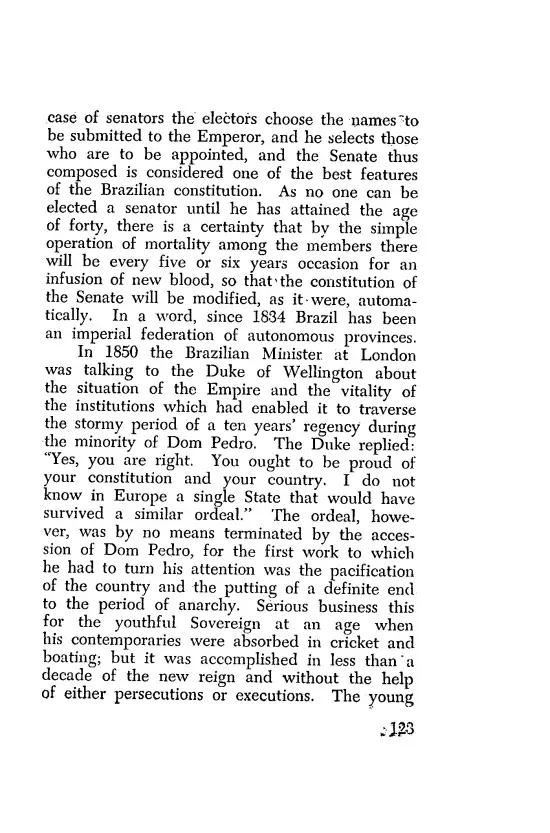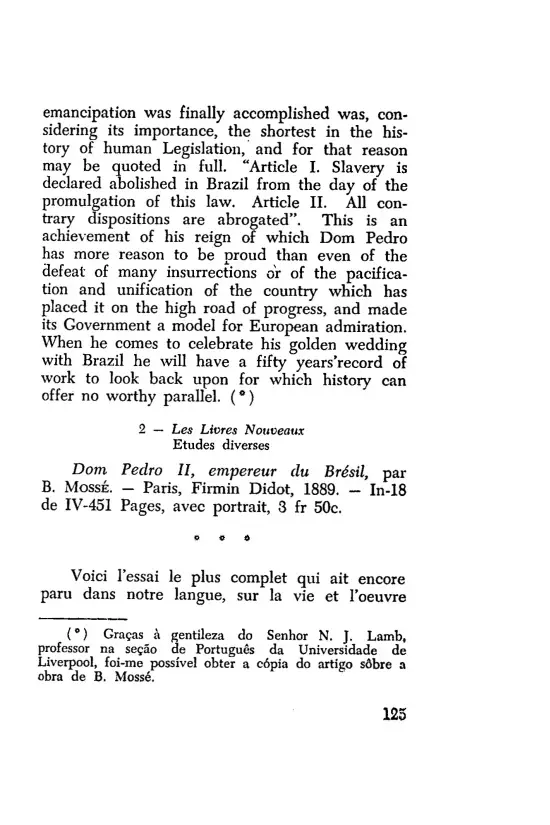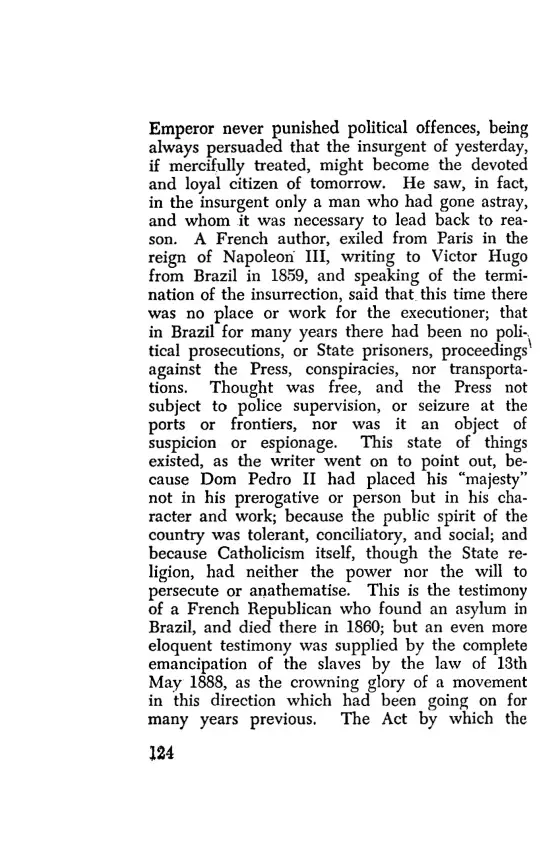Emperor never punished political offences, being always persuaded that the insurgent of yesterday, if mercifully treated, might become the devoted and loyal citizen of tomorrow. He saw, in fact, in the insurgent only a man who had gone astray, and whom it was necessary to lead back to reason. A French author, exiled from Paris in the reign of Napoleon III, writing to Victor Hugo from Brazil in 1859, and speaking of the termination of the insurrection, said that this time there was no place or work for the executioner; that in Brazil for many years there had been no political prosecutions, or State prisoners, proceedings against the Press, conspiracies, nor transportations. Thought was free, and the Press not subject to police supervision, or seizure at the ports or frontiers, nor was it an object of suspicion or espionage. This state of things existed, as the writer went on to point out, because Dom Pedro II had placed his "majesty" not in his prerogative or person but in his character and work; because the public spirit of the country was tolerant, conciliatory, and social; and because Catholicism itself, though the State religion, had neither the power nor the will to persecute or anathematise. This is the testimony of a French Republican who found an asylum in Brazil, and died there in 1860; but an even more eloquent testimony was supplied by the complete emancipation of the slaves by the law of 13th May 1888, as the crowning glory of a movement in this direction which had been going on for many years previous. The Act by which the


